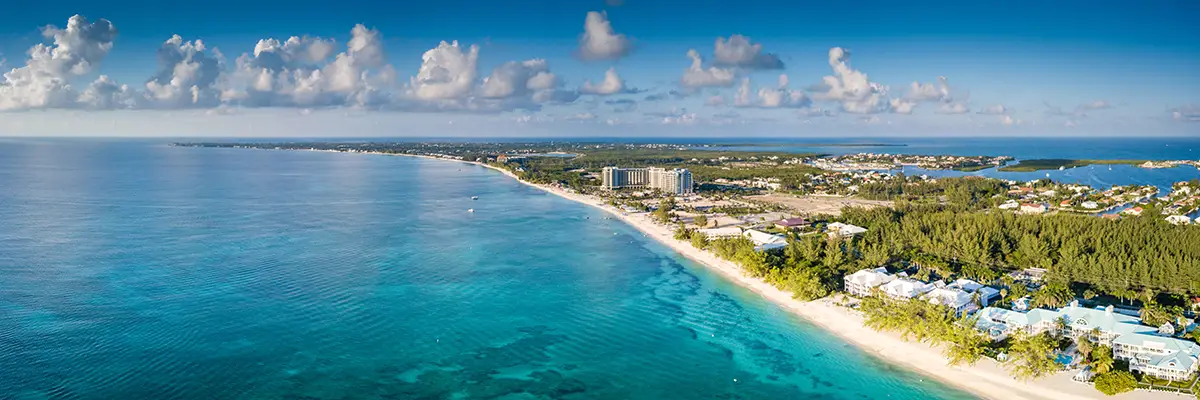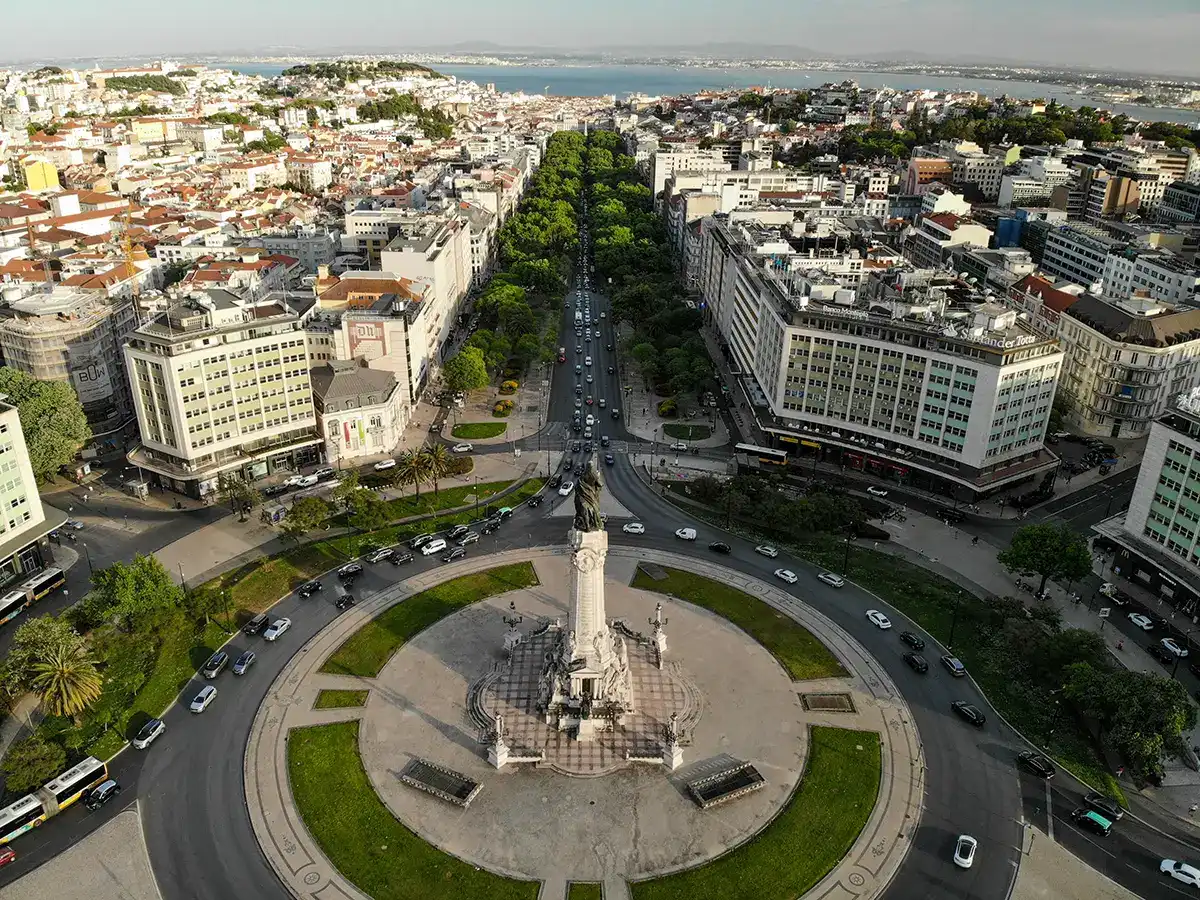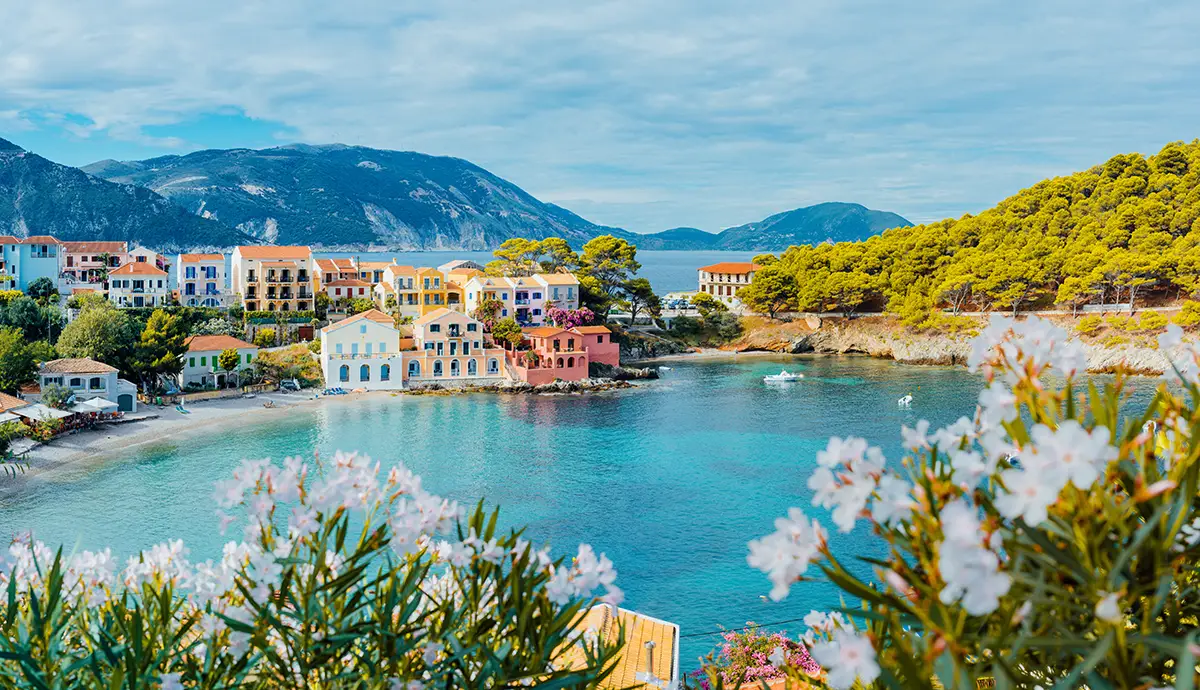But as appealing as “tax-free living” sounds, there’s more to the story. The reality is that not all countries with no income tax offer the infrastructure, residency pathways, or long-term stability that discerning investors expect.
This is where Golden Visas come in, allowing you to access low-tax environments with world-class living standards and a clear legal path to residency or even citizenship.
In this guide, we’ll explore what “no income tax” really means, the benefits and challenges of these destinations, and why pairing smart tax planning with a Golden Visa can offer the best of both worlds.
What Does “No Income Tax” Really Mean?
A no-income-tax country means a country wherein the residents are not required to pay personal income tax on salaries, dividends, interest, or capital gains.
Simply put, you retain 100% of your income.
Now, you might be wondering, how does a nation operate without any taxes? Public resources need funds to function after all, otherwise the system might break down.
So, countries use other avenues for revenue in order to support public services. For example, countries like Qatar and Kuwait rely on their natural resources (oil, if you’re wondering), while other countries like The Bahamas and Saint Kitts & Nevis depend heavily on tourism and hospitality.
Benefits of Living in a Tax-Free Country
As you might expect, relocating to a tax-free country allows you to enjoy more of your wealth and provides a sense of financial freedom.
The benefits might seem obvious, but let’s take a look at a few:
The most obvious and predictable benefit is wealth retention: you keep more of what you make. With this extra earned income, investors and global citizens can channel it however they please.
- Without complex annual filings or high compliance burdens, managing your finances becomes simpler.
- Several tax-free nations, such as the UAE and the Bahamas, are major air travel hubs offering quick access to Europe, Asia, and the Americas.
- Infrastructure and living conditions in certain countries with no income tax, like Monaco and Qatar, are quite an attraction, to say the least.
- Many countries with no income tax uphold strict financial confidentiality.
Challenges and Considerations
While countries with no income tax sound great so far, and they absolutely are, you also have to account for several factors that come into play when committing to relocation or investment. Take into account the following factors before making the call:
Limited Residency and Citizenship Options
Not all countries offer citizenship or long-term residency simply because you’ve made an investment. Moreover, they may also limit this privilege based on cultural or legal requirements. So, permanent settlement can be rather challenging in certain tax-free countries if you don’t qualify.
High Cost of Living
The cost of living in certain places, such as Monaco, Bermuda, or the Cayman Islands, can be quite high. Now, they do offer exceptional lifestyles, but you also have to account for real estate and daily expenses, which can be significantly higher than in European nations.
Infrastructure and Accessibility
Not every country has the infrastructure to support the facilities you may be used to. If you plan to select certain isolated countries, like the islands of Vanuatu or Nauru, you’d have to work with lack of, for example, advanced healthcare and high-tier education systems.
They may be available, but it's not the norm, so to speak. This is something to research deeply over, especially if you intend to move with family or have any specific health requirements.
Cultural and Social Adjustments
Every country has their culture, and all cultures have their way of doing things. There are certain countries, such as those located in the Gulf, that are conservative in nature and may require you to adopt certain customs, languages, or follow regulations.
Tax Residency Rules
Even if a country levies no income tax, your home country might still tax you on your global income.
Top Countries With No Income Tax or Low-Tax Alternatives
Here’s a closer look at some of the most attractive tax-free and low-tax destinations in 2026, and how Golden Visa programs raise their value.
1. The United Arab Emirates

The UAE remains one of the most attractive countries with no personal income tax globally, combining zero personal income tax with exceptional infrastructure, luxury living, and world-class safety.
Highlights:
- No personal income tax.
- 9% corporate tax only for high-profit companies.
- Real estate and investor-friendly policies.
- 10-year renewable Golden Visa for qualified investors and professionals.
With thriving business centres like Dubai and Abu Dhabi, the UAE offers both opportunity and lifestyle, all without the tax burden.
2. Qatar

Qatar’s wealth comes from natural gas exports, helping it maintain a zero-income-tax policy while rapidly transforming into one of the Middle East’s most advanced nations.
Highlights:
- No personal income tax.
- 10% corporate tax on locally earned business profits.
- Investor residency available through real estate, starting at US$200,000 (newly introduced pathway).
- Higher property investment tiers may unlock longer residency benefits.
- High quality of life, strong infrastructure, and excellent global connectivity.
For investors, Qatar offers a mix of financial security, lifestyle perks, and long-term growth potential, now with a more accessible entry point through its US$200,000 property-linked residency option.
3. The Bahamas

With its crystal-clear waters and proximity to the US, The Bahamas is both a tropical paradise and a haven for tax-efficient living.
Highlights:
- No personal income or capital gains tax
- Permanent residency available through real estate investment (minimum $750,000)
- Strong financial privacy and global reputation as a secure offshore centre
The Bahamas actually has an English-speaking jurisdiction, is quite stable, and we all know about the beaches.
4. The Cayman Islands

A global financial hub and one of the most secure tax-free territories, the Cayman Islands combine business opportunity with an unmatched island lifestyle.
Highlights:
- No income, corporate, or capital gains taxes.
- Residency options starting from $500,000 investment.
- Permanent residency is available with a $2.4 million minimum investment.
- Robust legal and financial systems.
For those seeking to combine business operations with an idyllic Caribbean lifestyle, the Cayman Islands remain a top-tier choice.
5. Monaco

Located on the French Riviera, Monaco is synonymous with luxury and wealth. Despite its small size, it attracts entrepreneurs and investors worldwide seeking zero income tax within Europe.
Highlights:
- No personal income tax for residents;
- Requires proof of substantial means (around €500,000 deposit);
- Access to the Schengen Zone and high living standards;
- Monaco is ideal for investors who prioritize stability, sophistication, and elite networking.
6. Vanuatu

A Pacific island nation with a simple tax system and an affordable citizenship program, Vanuatu offers one of the quickest paths to tax-free status and second citizenship.
Highlights:
- No personal or corporate income tax.
- One of the Cheapest Citizenship by Investment starting at $130,000.
- Strong privacy protections and no extradition treaty with the US.
- Though remote, Vanuatu provides a unique combination of affordability and financial freedom.
7. Portugal (Low-Tax Alternative)

Portugal is not tax-free but low-tax. However, the compromise is worth it to many investors and settlers because of the flexibility it offers in terms of travelling to Europe and its investor-friendly, low-tax options via the Golden Visa and NHR 2.0 (Non-Habitual Resident) programs.
Highlights:
- 10% flat tax on foreign pensions.
- Certain exemptions on foreign income, including dividends.
- 20% flat tax on eligible Portuguese-sourced income.
- Golden Visa route starting from €500,000 investment.
With safety, rich culture, and a five-year pathway to EU citizenship, Portugal offers a smart alternative to purely tax-free countries.
8. Greece (Low-Tax Alternative)

Greece’s Golden Visa program remains one of the best tax-friendly retirement destinations, which also happens to be the most accessible in Europe, pairing residency with appealing tax incentives.
Highlights:
- Flat annual levy of €100,000 on all foreign income for qualified individuals.
- Golden Visa from €250,000 real estate investment.
- Visa-free travel in the Schengen Zone.
- Pathway to EU citizenship after seven years.
Work With Investment Visa: Your Trusted Path to a Tax-Free Future
Relocation isn’t easy because one wrong move can land you in a country that doesn’t particularly fit your checklist.
Though easier said than done, choosing the right country means understanding the intricacies of its political stability, legal system, and culture. And that’s the bare minimum, followed by checking if they’ll meet your financial and lifestyle goals.
This process can feel overwhelming, and that’s where we offer our assistance. At Investment Visa, we specialize in guiding investors, families, and entrepreneurs to understand which country is best suited for them and help with the respective residency and citizenship programs.
With our expertise, you can transition to a tax-efficient life confidently and compliantly. Choose your destination program today.
Closing Thoughts
Having a second passport of an income-tax-free country can be quite liberating financially.
It's an instant boost to your lifestyle, with more freedom and security simultaneously. However, you should choose a country with the utmost care, as every country has its own lifestyle, infrastructure, and legal pros and cons.
That’s why Golden Visas and residency-by-investment programs present a smarter path by combining favorable taxation with legal certainty, world-class living conditions, and a clear route to citizenship.
Policies are ever-changing, so start exploring your options and contact Investment Visa today if you’re ready to start building your plan toward a tax-efficient global lifestyle.



























































































































